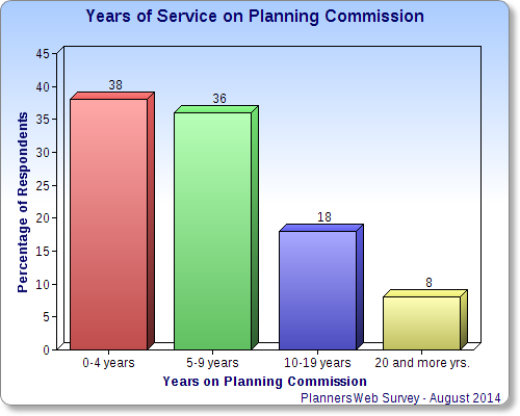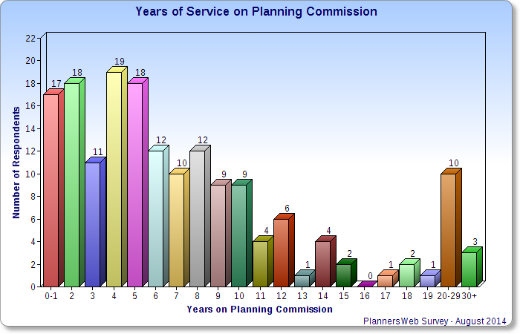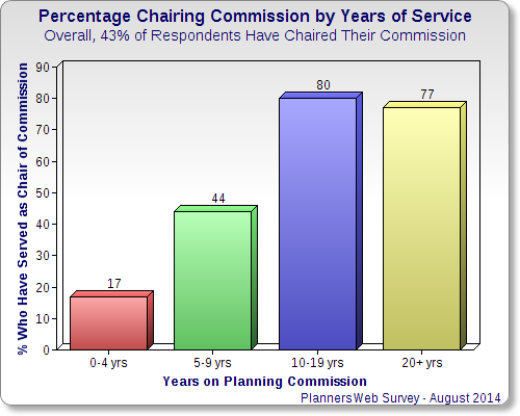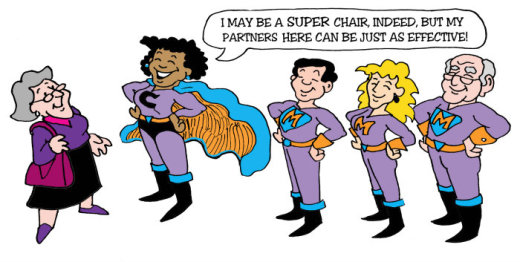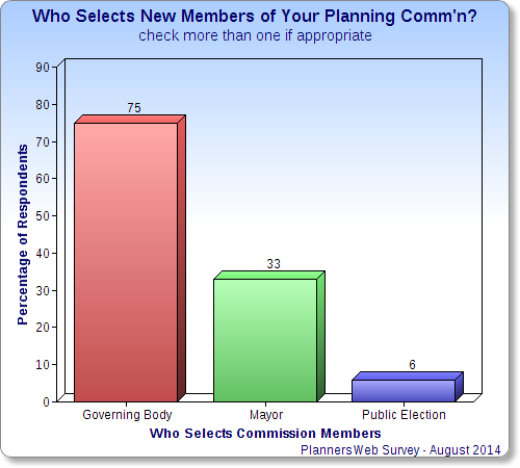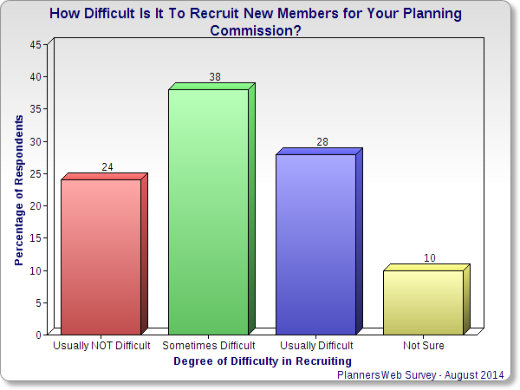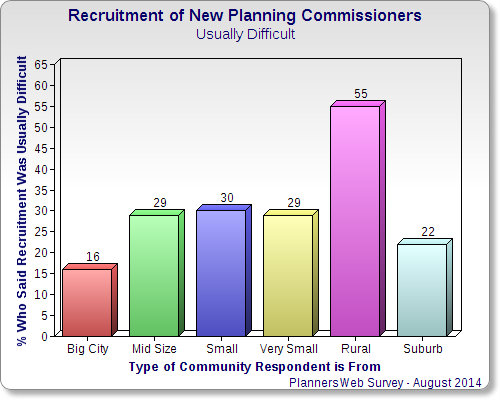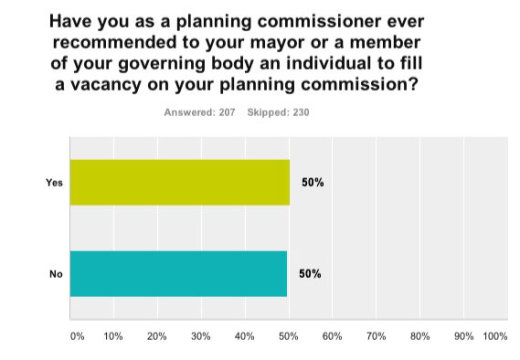In this post, we discuss results from our survey that take a look at:
- how long planning commissioners have served, and how many of our respondents have served as chairperson.
- who appoints planning commissioners, and
- how difficult (or not) is it to recruit new commissioners.
1. Length of Service
We asked planning commissioners to tell us how long they’ve served.
Breaking this down into more detail, by number of respondents (not by percentage):
The average length of planning commission service for our respondents is 7 and-a-half years.
As you can see, there’s quite a range. The average length of planning commission service for our respondents is 7 and-a-half years.[ref]Unfortunately, we did not think to ask whether any commissions have term limits, so we can’t say what (if any) impact that might have had.[/ref]
This may indicate that many commissioners enjoy their work, and are willing to serve for relatively long periods of time. In fact, over one-quarter of our respondents have served for 10 years or longer. Two planning commissioners who participated in our survey — one from Illinois, the other from New Hampshire — have each served for 42 years. All we can say, to use textspeak, is OMG![ref]OMG (Oh, My God) in the Oxford Dictionaries online.[/ref]
2. Service as Chairperson
In another question, we asked commissioners whether they’ve ever served as chairperson. Altogether, 43 percent said they had. You can see how these responses correlate with length of service in the table below. Not surprisingly, those who have served longer are much more likely to have also served as chairperson.
The bottom line — at least from what we heard back from our respondents — is that many planning commissioners are well-experienced and have played a leadership role on their commission.
3. Who Selects Commissioners?
In our questionnaire, we also asked who selects members of the planning commission. Here’s what our respondents told us.
As you can see, for three-quarters of our respondents, the governing body (i.e, city council; county commission; selectboard; etc.) has that responsibility, at least in part. In some places, both the governing body and the mayor are involved — 16 individuals noted in their comments that their mayor provides a recommendation to the governing body.
Several other arrangements were also mentioned, such as:
- “Each City Council rep selects a planning commission member from their district.”
- “City manager.”
- “Republican and Democratic Town Committee Official.”
- “Each County Supervisor appoints one Planning Commissioner.”
- “Chairman of planning commission.”
Twenty-six of our respondents (6 percent) said that planning commissioners in their community were elected. Of that total, 21 were from New England, including 12 from Massachusetts and 5 from Connecticut, the two states where this practice appears to be most common (and town voters have authority to elect planning board members at the annual town meeting).[ref]See, e.g., Mass. General Laws, Chpt. 41, Sec. 81A.[/ref]
4. Recruiting New Commissioners
We asked our respondents:
We filtered the responses to see if there might be a connection between difficulty in recruitment and the type of community respondents are from (i.e, big city, small city, rural area, etc.). Note: see our earlier post for how we define “big city,” “mid-sized city,” and so on.
The first table below shows the percentage of respondents in each of six different types of communities who said recruitment was USUALLY DIFFICULT.
The second table is of respondents who said recruitment was USUALLY NOT DIFFICULT.
Our results — not surprisingly — show that respondents from big cities have a much easier time recruiting new members than those from very small cities/towns or rural areas.
While, as we’ve noted before, our survey was not designed to reflect a scientifically-based random sample, our results — not surprisingly — show that respondents from big cities have an easier time recruiting new members than those from very small cities/towns or rural areas.
Some people added comments to their response. Among these comments:
- “Not necessarily difficult, but appointments are primarily political, which is a big problem!”
- “Applicants are mostly under qualified, meaning that they lack direct or indirect planning or planning-related experience.”
- “Many in the community have already served and our pop base is small.”
- “In our area, plan commissioners are frequently on a path to an elected position.”
- “County planning commission has greater reservoir of talent. Small towns have less of a reservoir.”
- “The ethic of public service has been so diminished by the press. People are not willing to serve and have their lives made public.”
5. Planning Commissioner Involvement in Recruiting New Members
Finally, we were curious to what extent planning commissioners were involved in the recruitment of new members. We asked our planning commissioner respondents:
Among the additional comments some respondents provided:
- “As chair I recommended people to fill board positions to the Mayor for his consideration, and the Mayor discussed who he was going to nominate to the board and why. We collaborated on who would be a good fit for the characters on the team.”
- “I watch for people interested in issues, speaking at meetings, serving as non-PC subcommittee members.”
- “In our town that is a political recommendation.”
- “Board membership is hard to sell.”
Our Next Post: Ethnic and Demographic Diversity on Planning Commissions.
